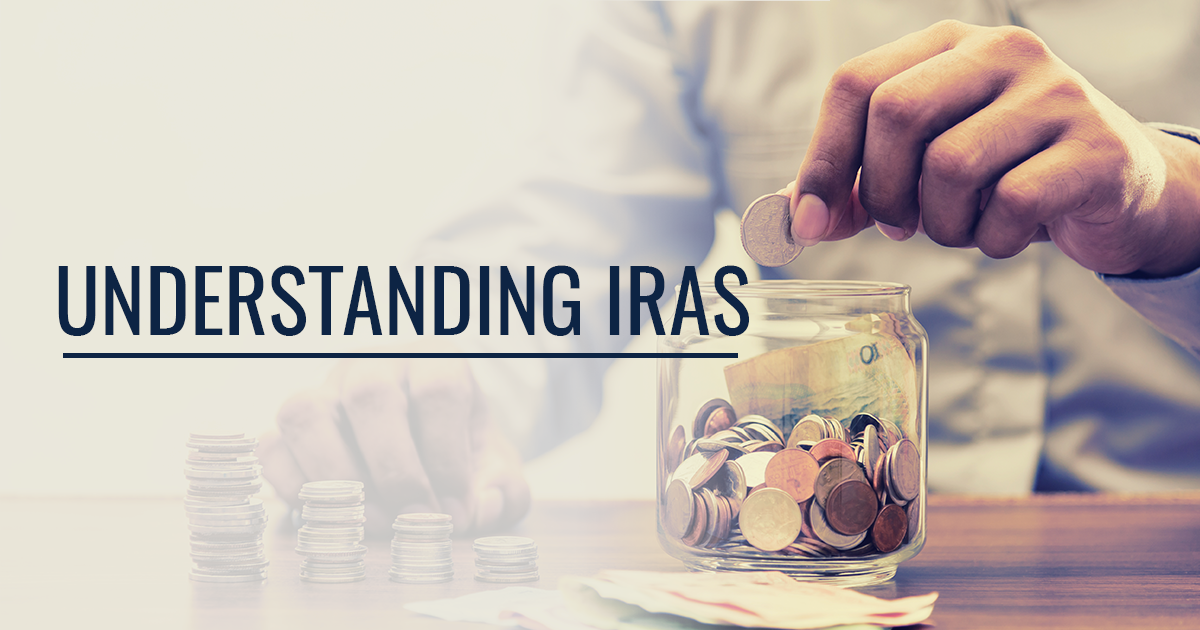Traditionally, when people think of retirement savings, they think of a 401K. The second most common type of retirement savings plan is an Individual Retirement Account or IRA. However, many people don’t quite understand what an IRA is. An IRA is an investment tool individuals use for retirement savings. There are several types of IRAs including, traditional IRAs, Roth IRAs, SIMPLE IRAs, and SEP IRAs. These accounts usually consist of savings accounts, stocks, bonds, or mutual funds. Typically, individuals take traditional and Roth IRAs, and small businesses and the self-employed take SIMPLE and SEP IRAs. We will discuss the different accounts below.
Traditional IRA
In a traditional IRA, contributions are tax deductible in most cases. This means that you can claim contributions as a deduction on your tax return and the IRS will not tax. However, when you retire and withdraw from the account, it is taken at an ordinary income tax rate. With a traditional IRA, yearly individual contributions cannot exceed $5,500. If you are 50 or older, yearly contributions cannot exceed $6,500.
There are rules that you need to be aware of in terms of how much of your contributions are tax deductible. These can depend on if your employer offers a retirement plan or not. They also depend on your modified adjusted gross income. You can read more about those rules here.
One last thing you should know about traditional IRAs is that beginning at age 70 and a half, traditional IRA savers are required to start taking required minimum distributions (RMDs), based on their life expectancy and account size. Failure to do this may result in tax penalties equal to 50% of the amount of the RMD.
Roth IRA
This kind of IRA is not tax deductible, but qualified distributions are tax free. This means you can contribute to a Roth IRA using after tax dollars, and as the account grows you do not face taxes on investment gains. When you retire, you can withdraw money from the account without incurring any income taxes. Roths also don’t have RMDs like traditional IRAs. This means, if you don’t need the money at age 71, you don’t have to take any out and you don’t have to worry about paying a penalty.
There is however a limit to how much you can contribute to a Roth IRA, and it is based on your income or your household income. Talk to your financial advisor to see where your limit would be.
Simplified Employee Pension (SEP) IRA
A Simplified Employee Pension (SEP) IRA is typically used by the self employed. An SEP adheres to the same taxation rules as a traditional IRA. However, the contributions limit is a bit different. The contribution limit for an SEP IRA is limited to 25% of the individual’s compensation or $55,000, whichever is less. With an SEP for small businesses, employees do not make contributions.
See IRS rules and regulations for complete details at https://www.irs.gov/retirement-plans/individual-retirement-arrangements-iras.
SIMPLE IRA
A SIMPLE (Savings Incentive Match Plan for Employees) IRA is typically used by small businesses. It also follows the same taxation rules for withdrawals as a traditional IRA. It is different from a SEP IRA in that employees are allowed to contribute to their accounts. The employer is also required to make contributions as well. All contributions to accounts are tax deductible. Similar to the three other IRAs, there are contribution limits for the employee. Contributions cannot exceed $12,500, with a $3,000 catch up limit for individuals 50 or older.
If you are ready to begin saving for retirement, come talk to our bankers today!

